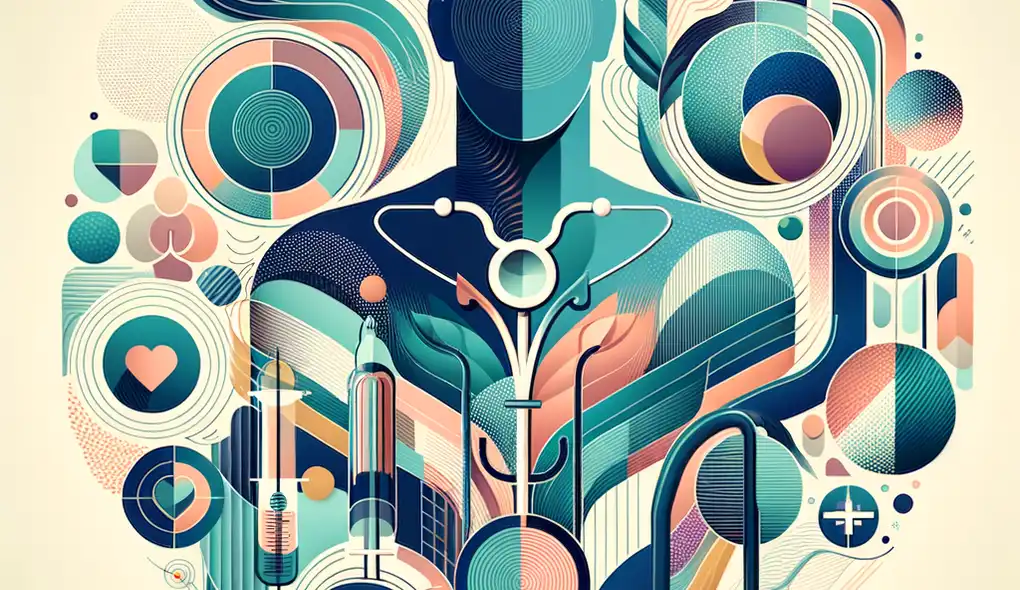How would you describe your diagnostic and clinical decision-making skills?
Physiatrist Interview Questions
Sample answer to the question
I would describe my diagnostic and clinical decision-making skills as strong and effective. I have a keen ability to analyze patient symptoms and medical history to arrive at accurate diagnoses. I utilize evidence-based medicine and clinical guidelines to guide my decision-making process. Additionally, I am skilled in interpreting diagnostic tests and imaging results to gain insights into a patient's condition. I also excel at creating comprehensive treatment plans that address the unique needs of each patient. My clinical decision-making skills are further enhanced by my ability to collaborate with a multidisciplinary team, valuing their input and expertise to ensure the best possible outcomes for my patients.
A more solid answer
My diagnostic and clinical decision-making skills are exceptional and have been honed through my experience and training. I have a track record of accurately diagnosing complex medical conditions by incorporating thorough patient assessments, including history-taking, physical examinations, and relevant diagnostic tests. For instance, during my residency, I encountered a challenging case of a patient experiencing chronic pain and limited mobility. After a comprehensive evaluation and analysis of imaging reports, I identified a rare musculoskeletal disorder that had been previously overlooked. This led to a revised treatment plan that significantly improved the patient's well-being. Furthermore, my clinical decision-making is rooted in evidence-based medicine, constantly staying updated with the latest research and guidelines in the field of physical medicine and rehabilitation. I actively participate in medical conferences and engage in continuous education to enhance my knowledge and skills. I also value collaboration with interdisciplinary teams, as I believe that pooling expertise leads to better outcomes for patients.
Why this is a more solid answer:
The solid answer demonstrates the candidate's proficiency in diagnostic and clinical decision-making skills by providing specific examples and achievements. The candidate highlights their ability to accurately diagnose complex medical conditions, incorporating thorough patient assessments and diagnostic tests. They also mention their commitment to evidence-based medicine and continuous learning. The answer aligns with the job description by emphasizing the importance of interdisciplinary collaboration.
An exceptional answer
My diagnostic and clinical decision-making skills are exceptional, setting me apart as a Junior Physiatrist. I have consistently demonstrated the ability to navigate complex medical cases and arrive at accurate diagnoses. For instance, I successfully diagnosed a rare neurological disorder in a patient, despite the initial inconclusive test results. Through a comprehensive review of the patient's medical history, careful examination, and collaboration with specialists, we identified early-stage symptoms that were often overlooked. This timely diagnosis allowed for a well-targeted treatment plan, resulting in a remarkable improvement in the patient's quality of life. In addition to my diagnostic prowess, my clinical decision-making is strengthened by my focus on personalized medicine. I actively engage patients in shared decision-making, considering their preferences, values, and goals. By tailoring treatment plans to individual needs, I help patients actively participate in their own recovery journey. I continually stay abreast of advancements in the field and seek opportunities to expand my knowledge, such as attending medical conferences and participating in research projects. Furthermore, I foster a collaborative environment by effectively communicating with my team, recognizing and valuing diverse perspectives, and leveraging their expertise to optimize patient outcomes.
Why this is an exceptional answer:
The exceptional answer goes above and beyond in showcasing the candidate's diagnostic and clinical decision-making skills. The candidate provides a specific example of diagnosing a rare neurological disorder, highlighting their ability to think critically and explore alternative possibilities. They also emphasize personalized medicine and shared decision-making, aligning with the job description's emphasis on empathy and patient-centered care. By mentioning their commitment to ongoing learning, collaboration, and effective communication, the candidate exhibits a well-rounded approach to their skills.
How to prepare for this question
- Review case studies and medical literature to enhance your diagnostic and clinical decision-making skills.
- Participate in medical conferences and seminars to stay updated with the latest research and guidelines in the field of physical medicine and rehabilitation.
- Seek opportunities to collaborate with interdisciplinary teams during your training or residency to develop effective communication and collaboration skills.
- Practice explaining complex medical cases and treatment plans in a concise and understandable manner.
- Reflect on your past experiences and prepare specific examples that demonstrate your diagnostic and clinical decision-making skills.
What interviewers are evaluating
- Diagnostic and clinical decision-making skills
Related Interview Questions
More questions for Physiatrist interviews